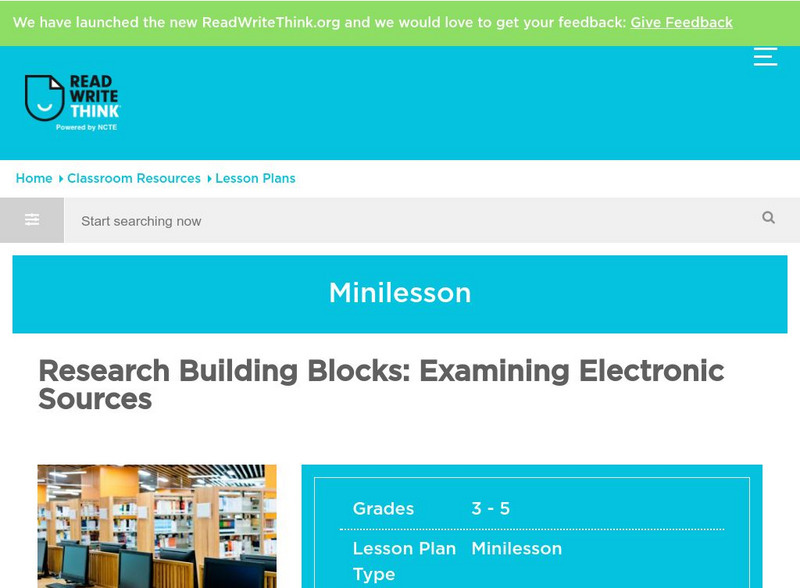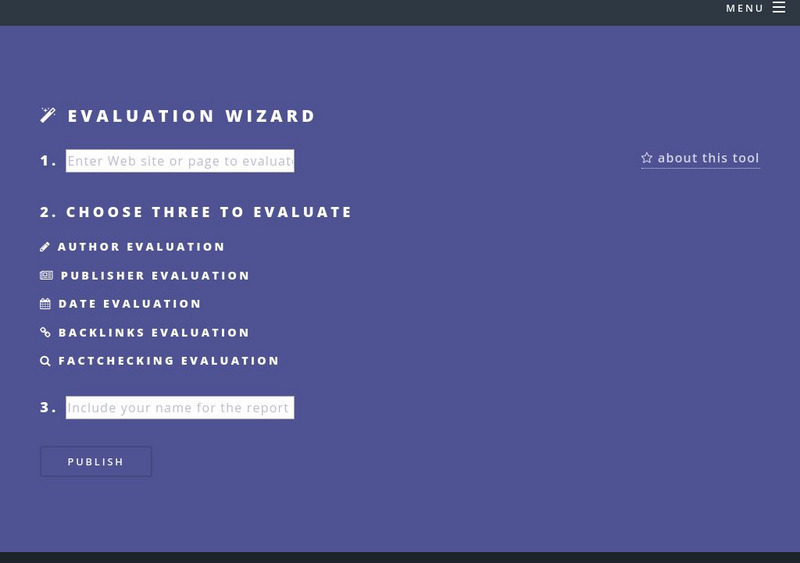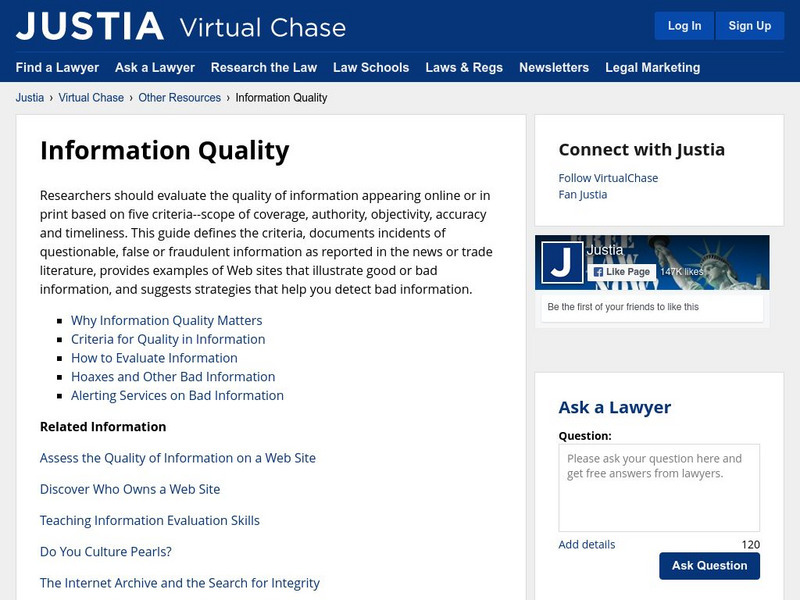Other
University of Idaho: Internet Information Literacy
A lesson module on identifying the types of information one finds on the Internet (popular/scholarly, primary/secondary/tertiary) and the different formats information can come in. Learning exercises are embedded in the module, and a...
ReadWriteThink
Read Write Think: Research Building Blocks: Examining Electronic Sources
This lesson helps elementary students identify the important components of web site evaluation. It includes a website evaluation question sheet.
Information Fluency
Imsa 21 Cif Portal: Evaluation Wizard
Internet content is not reviewed like published written material - so how do you know if the information you found on the Internet is reliable? Use this Evaluation Wizard to guide you through a thorough assessment of any Internet...
Sophia Learning
Sophia: Evaluating Digital Information: Tutorial
In this slideshow tutorial, students will review how to evaluate digital sources. During the digital evaluation process, students are directed to analyze the following: authority, accuracy, objectivity, and currency. After the tutorial,...
Other
Babson College: Evaluating Quality on the Net
Internet research is a fine writing tool, but can you trust the information you find? This presentation by Hope N. Tillman, Director of Libraries at Babson College, gives advice on assessing the quality and credibility of information...
Other
Who Is Hosting This: How to Evaluate Web Resources
This is an excellent, compact guide to evaluating resources on the Internet. It breaks everything down into easy steps and tells you how to do each. Included is an infographic called 'Evaluating Web Resources: A 60 Second Guide.' It also...
Other
21 Things4 Students: Advantages and Disadvantages of Different Media Table
This chart lists different tools students can use to create digital media. The table covers animation, audio recording and podcasts, cartoons, infographics, interactives, screencasts, slideshows, and videos. Each tool has a list of...
University of California
Uc Berkeley: Rationale for Evaluating the Web
By asking a series of questions, you can evaluate webpages skillfully and train your mind to think critically, even suspiciously in order to decide how much a webpage is to be trusted.
Other
The Virtual Chase: Evaluating Information on the Web
This resource teaches researchers how to evaluate information that they find on the Internet for accuracy, authority, timeliness, and objectivity. Features include a checklist for evaluating websites, information on common...
Other
Walt's Navigating the Net Forum: Evaluating Quality
This article helps searchers develop evaluation skills in judging information and helps web content developers increase the credibility of their materials for those looking for quality on the net.
Common Sense Media
Common Sense Media: Education: Sites I Like: K 2
Students explore and evaluate an informational website for children. They discover that people's opinions about the quality and usefulness of a site will vary. As a class, students view a website and identify features that they like and...
Cornell University
Cornell University: Library: Critically Analyzing Information Sources
A quick guide to help you determine the relevance and authority of a resource.
Other
Classroom Tech: Evaluating Web Credibility
There is a vast amount of information on the internet, but how much of it is credible? This site presents tips on how to verify the information on a website and not be fooled by web "spoofs". Refer to the checklist for evaluating sources.
Education Place
Houghton Mifflin: Eduplace: Finding and Evaluating Web Sites
"When you need to do research, the World Wide Web is a great resource." Find out what to look for in using quality sites for your research.
Common Sense Media
Common Sense Media: Best Tech Creation Tools
Check out this list of terrific tools for tech creation that offer a wide variety of engaging end products kids can create, from stories to animations to music to games.
ClassFlow
Class Flow: Rate a Website
[Free Registration/Login Required] In this flipchart five key website evaluation components are reviewed: author, date, navigation, visuals, and information.














